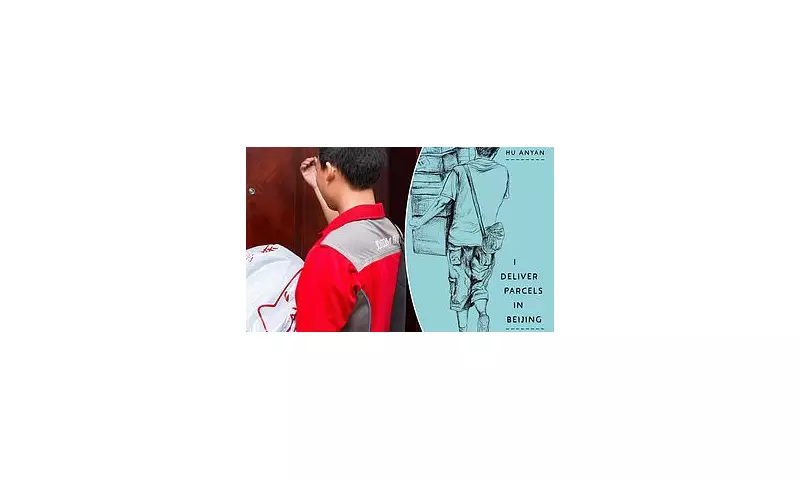
In the shadow of Beijing's glittering skyscrapers and economic prosperity, an army of delivery riders navigates the city's congested streets, their stories largely untold until now. Hu Anyan's searing memoir, 'I Deliver Parcels in Beijing', pulls back the curtain on one of China's most essential yet overlooked professions.
The Human Cost of Convenience
Hu's account reveals a world where 18-hour shifts are commonplace, and the relentless pressure to meet delivery quotas pushes riders to their physical and mental limits. These modern-day couriers have become the invisible backbone of urban China's consumption boom, yet they operate in a system that offers little protection or recognition.
The memoir details how riders must navigate not just Beijing's treacherous traffic, but also an unforgiving algorithm that monitors their every move. 'You're not just racing against time, you're racing against an invisible master that never sleeps,' Hu writes, capturing the constant surveillance that defines their working day.
Isolation in a City of Millions
Perhaps most poignant is Hu's description of the profound loneliness that accompanies the job. Despite being constantly surrounded by people, delivery drivers exist in a social vacuum - perpetual outsiders looking in on the lives they service but can never join.
The book describes fleeting encounters with wealthy clients in luxury apartments, highlighting the stark economic divides in contemporary Chinese society. These moments serve as painful reminders of the social mobility that remains elusive for many migrant workers.
A System Built on Exploitation
Hu's testimony exposes the precarious nature of gig work in China, where:
- No employment contracts or job security
- Dangerous working conditions with minimal safety protections
- Financial penalties for minor delays beyond their control
- Constant fear of being replaced by newer, cheaper labour
The memoir has sparked crucial conversations about workers' rights in China's rapidly evolving economy, challenging the narrative of endless opportunity that dominates official discourse.
More Than Just a Job
What emerges from Hu's powerful account is not just a critique of working conditions, but a deeply human story of resilience. Despite the overwhelming challenges, these riders display remarkable determination, supporting families in distant villages and clinging to their own versions of the Chinese Dream.
The book has been praised for giving voice to a generation of migrant workers who power China's economic miracle yet remain largely invisible in the nation's success story. Hu's memoir stands as both a personal testament and a social document of our times, offering readers an unprecedented look into the human machinery that makes modern urban life possible.





